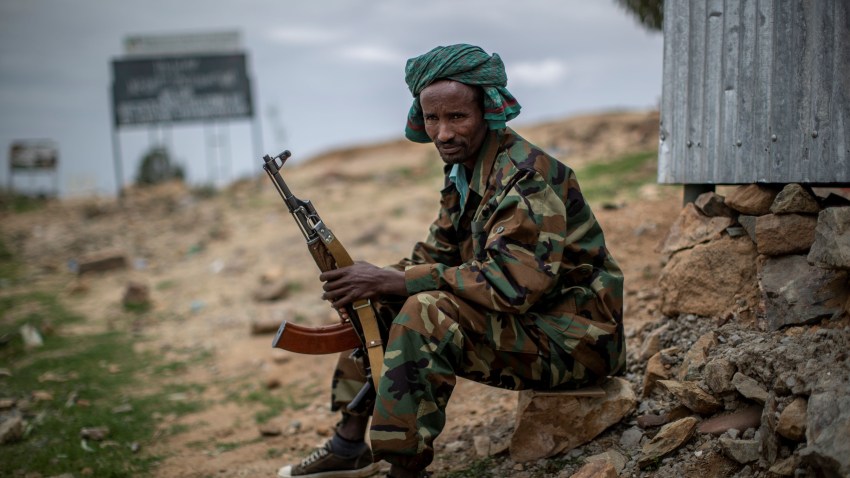The highest-level negotiations between the two sides in Ethiopia’s civil war began last week in South Africa, amid low expectations they will end the two-year war, which has claimed more than 600,000 lives, or open a pathway to lasting peace. Nevertheless, the African Union-led talks between Ethiopia’s federal government and representatives of the Tigray People’s Liberation Front, or TPLF, which began Oct. 24 and were scheduled to end on Oct. 30, have been extended, suggesting that, if both sides are not ready to stop fighting, neither are they ready to stop talking.
Former Nigerian President Olusegun Obasanjo, who serves as the AU’s high representative for the Horn of Africa, was joined at the talks by Kenya’s former President Uhuru Kenyatta, who now serves as Nairobi’s envoy for the conflicts in Ethiopia and the Democratic Republic of Congo. The mediation team also includes Phumzile Mlambo-Ngcuka, a former deputy president of South Africa; Mike Hammer, the U.S. special envoy to the Horn of Africa, is attending the talks as an observer.
The war in Ethiopia broke out in November 2020, when forces loyal to the TPLF launched attacks on the Ethiopian armed forces’ northern command headquarters in Mekelle as well as other bases in the Tigray region, following months of tensions between Tigray’s regional government and the federal government of Prime Minister Abiy Ahmed. Since then, the conflict has claimed hundreds of thousands of lives and led to a humanitarian crisis, with millions of people displaced and left desperately short of food. The war has also spilled over into Ethiopia’s Amhara and Afar regions, with the Eritrean armed forces also fighting on the government’s side in the early stages of the conflict as well as more recently.

